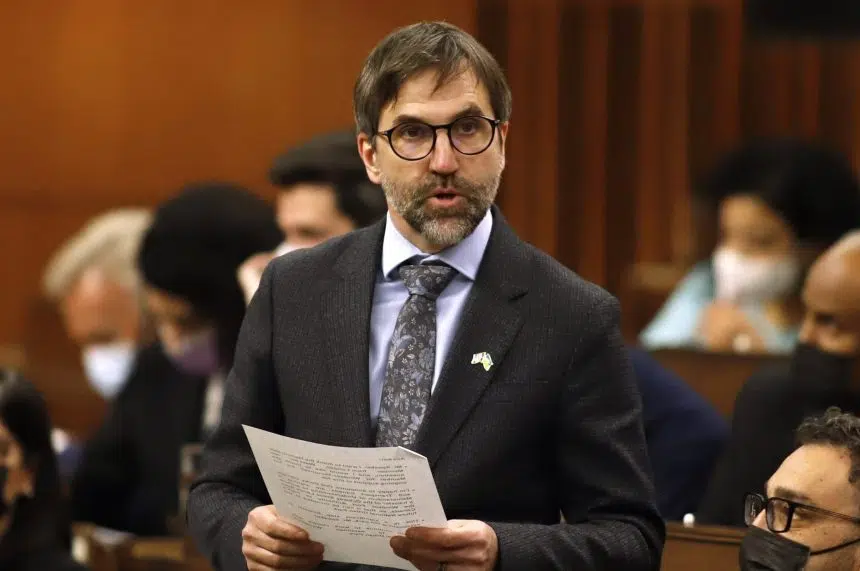Canada’s environment minister has sent a terse letter back in response to a terse and warning letter sent on the weekend by Saskatchewan’s minister responsible for the Water Security Agency.
“I believe that we, and Canadians, are best served when we engage on the facts — not heated and misinformed rhetoric,” federal minister Steven Guilbeault wrote in the letter made public Wednesday.
On Sunday, provincial minister Jeremy Cockrill sent a letter to Guilbeault and posted it to Twitter. In the letter, Cockrill said the province had received several complaints of federal workers going onto private farmland without permission and taking water samples.
In the letter Cockrill called the testing “covert” and inappropriate, said the workers were trespassing, quoted The Trespass to Property Act and noted there could be financial penalties. He also demanded that federal government employees “cease and desist any further surreptitious entry on private lands.”
The day before Cockrill sent that letter, an Order in Council was passed in Saskatchewan to add federal government workers as an entity to which The Trespass to Property Act applied.
In his response letter, sent to media as well as Cockrill, Guilbeault said he wanted to address speculation and clarify the work scientists were doing.
Guilbeault didn’t say exactly what the scientists were doing in Saskatchewan, but did say that they routinely conduct water monitoring in all provinces to help ensure people’s health and safety and the environment are protected.
He confirmed that scientists were in Saskatchewan on Aug. 11 and were taking samples along a highway near Pense when a landowner approached them and told them they were on private land.
In his letter, Cockrill relayed that one of the complainants was told the scientists were testing for pesticide/nitrate levels.
Guilbeault, in his letter Wednesday, called Cockrill’s letter very public and very frank.
“Please allow me to be equally frank and public in my response: departmental officials are not testing water for nitrates or nutrients related to farm runoff, and their study is not related to the non-regulated, voluntary goals of the Government of Canada in an effort to reduce emissions from agricultural fertilizers,” wrote Guilbeault.
The federal minister said there are strict protocols in place scientists must follow to make sure water sampling is done within the law.
“If a federal scientist inadvertently encroached on private land without permission, this matter that can surely be handled in a mature and informed manner,” wrote Guilbeault.
Guilbeault said Environment Canada is reviewing its sampling protocol and looks forward to working with the provincial government to better understand the recent Order in Council rule change.
“All orders of government should be able to agree on the value of collecting baseline scientific data, in accordance with the laws of the land, to protect the health and safety of Canadians,” finished Guilbeault.
Late Wednesday afternoon, the Government of Saskatchewan sent a statement in response to Guilbeault’s letter. The statement accuses the federal minister’s letter of trying to invalidate landowner’s reports and says that both their and the province’s concerns about this situation are valid.
“This situation could have been avoided if the federal government had taken steps to be collaborative, communicate their concerns, and their intentions. However, the recognition by Minister Guilbeault of the need to follow local laws is acknowledged and appreciated,” read the provincial government’s statement.











